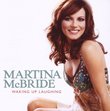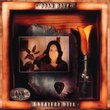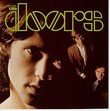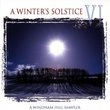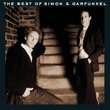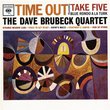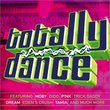| All Artists: Cannonball Adderley Title: Sophisticated Swing: Emarcy Small Group Sessions Members Wishing: 2 Total Copies: 0 Label: Polygram Records Original Release Date: 9/26/1995 Release Date: 9/26/1995 Genres: Jazz, Pop Styles: Soul-Jazz & Boogaloo, Bebop Number of Discs: 2 SwapaCD Credits: 2 UPC: 731452840820 |
Search - Cannonball Adderley :: Sophisticated Swing: Emarcy Small Group Sessions
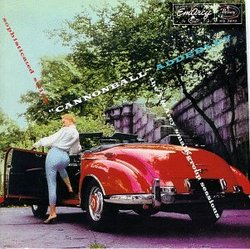 | Cannonball Adderley Sophisticated Swing: Emarcy Small Group Sessions Genres: Jazz, Pop
|
Larger Image |
CD DetailsSimilarly Requested CDs
|
CD ReviewsTight, classy,swinging bebop unit of the fifties Ian Muldoon | Coffs Harbour, NSW Australia | 01/18/1999 (4 out of 5 stars) "This fine re-issue celebrates the complete output of the first Cannonball Adderley Quintet co led by brother Nat. Four LP's in total - To the Ivy League, Sophisticated Swing, Cannonball Adderley Enroute and Cannonballs Sharpshooters. Supporting players include Junior Mance(pno) Sam Jones or Al McKibbon (Bs) and Specs Wright or Jimmy Cobb (dms). Cannonball's greatest moments may have been with Miles Davis on SOMETHING ELSE(BLUE NOTE) or MILESTONES and KIND OF BLUE(Columbia) but on this re-issue his punchy attack, fabulous swing, and distinctive sound are a real treat. If there's one thing that's memorable about this music it's the damn swagger, the sense of joie de vivre that this group had. It may be not as distinguished as the Clifford Brown/Max Roach Quintet (there's no Parisienne Thoroughfare here)but it's in the same ball park. The supporting musicians are perfectly suited to this approach and if Jimmy Cobb and Cannonball wanted a night off from Miles' intensity at the time, this is the music I'd imagine they'd play for fun. There are 36 tracks(repeat 36 tracks) some as long as nine minutes all brilliantly remastered and this represents real musical value for money. Although the uptempo numbers tend to follow a format of Horn Chorus of the main theme, alto solo, cornet solo, piano solo, bass solo, drum break(maybe)horn chorus of the main theme, coda and out, there are tracks which just feature Cannonball (he brings to the ballad What's New an appropriate sardonic humour which exactly fits the lyric as interpreted by say Peggy Lee)but some of the arrangements are by genius Ernie Wilkins and there are some wonderful surprises like the medium tempo romp of Straight No Chaser which has a brilliant alto solo and a truly soulful beautifully expressed cornet solo by Nat, as if he's saying on the horn "Monk - I Love You." In summary, there's not a dud track on this double CD issue; the swagger and panache of a player completely in control of his art and craft is evident in every note Cannonball plays; brother Nat is a joy, and all supporting players hang in there with aplomb. One of my best buys of 1998." What jazz is all about. Ian Muldoon | 01/20/2004 (5 out of 5 stars) "I love many types of jazz, from raging European free music to contemporary post-bop to early swing and most things in between. But to my ears, you'll find the real essence of jazz on these two wonderful discs: short, _melodic_, enormously catchy tunes filled with great hooks and played with a masterful combination of elegant grace and hard-swinging soulful swagger. Most of the tunes run in the three-minute range, so the solos are long enough to let the musicians say something individual, but you don't have to deal with the extended workouts found on many later jazz albums that tend to highlight players' failings as much as their strengths. I've heard a lot of later Cannonball, but for my money, this is some of his best material as a leader (though don't miss the classic Somethin' Else on Blue Note, featuring Miles Davis).Fun, beautiful music--what more do you need?" Funk Aplenty Samuel Chell | Kenosha,, WI United States | 03/13/2008 (4 out of 5 stars) ""Sophisticated Swing" was not only my first exposure to Cannonball but to the whole hard-bop, soul-jazz idiom that took hold in the mid-fifties (Blue Note recordings, for some reason, didn't make it up into northern Wisconsin--but apparently EmArcy didn't make it to All Music Guide, which doesn't even list the session). Next I picked up, also on EmArcy, "Cannonball Enroute." These two albums and two more Emarcys are collected on this 2-disc collection, so 20 bucks is a nice price.
As for the music, it's for the most part a more "commercial," flashy and showy side of Cannonball assisted by the Bobby Timmons-led rhythm section, punctuated by brother Nat's stratospheric work on cornet. Listening to it today, I find the funk a bit overdone and the playing quite obvious (on "Stella By Starlight" Cannonball plays nothing but straight melody using his loudest and fattest timbre). I have practically all of the Adderley-led quintet and sextet sessions on Riverside, but again the most enduring and memorable Cannonball is to be found on his sessions with Miles ("Somethin' Else," "Kind of Blue," "Milestones"), Bill Evans ("Know What I Mean"), Coltrane ("In Chicago"), Milt Jackson ("Things Are Getting Better"). With his own touring groups, Cannonball had a tendency to bulldoze through the sets, determined to make a connection with the crowd (which became an ever greater challenge as the 60s wore on--one of the reasons Sonny Stitt simply traveled from city to city as a free agent, forever on the lookout for decent-sounding local rhythm sections). Perhaps the essence of Cannonball Adderley is best captured on "Cannonball Takes Charge," a 1959 session with Cannonball's the only horn supported by a Wynton Kelly rhythm section. The gospel-funk elements are all there but emerge naturally from the inspired playing of all hands. The wonder is that this varied and vibrant session was not selected by Keepnews to be part of last year's Riverside reissue series (it's presently available on Capitol). For an especially revealing listening experience, compare this alto + rhythm set with the same instrumentation on the 2008 Sonny Stitt reissue, "Don't Call Me Bird," also from 1959. Stitt centers his sound; Cannonball embraces it, capturing center, margins and all. Stitt perfects then assembles each polished melodic-harmonic cell into a flawless, pyrotechnical design; Cannonball generates a tidal wave or jet stream, then rides its force as far as it can take him (one of the reasons he gets farther than Sonny on near-modal tunes like "If This Isn't Love" not to mention "So What"). Stitt is Bird filtered through Bud Powell and equally Art Tatum; Cannonball is Bird by way of Rev. C.L. Franklin and James Brown." |

 Track Listings (21) - Disc #1
Track Listings (21) - Disc #1